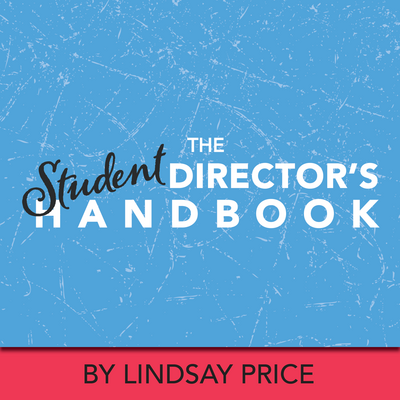Approaching Your Script: What Directors Need to Think About Before Beginning the Production Process
Choosing a show for your school to produce can be challenging. But once you have selected the show, the hard part is done, right?
Well, it’s one thing crossed off your list, but your list is about to get much longer–there is a whole host of other concepts to consider. Here’s a jumping off point for approaching your script, inspired by the ever-useful “5 W’s” – who , what , where , when and why.
Please note: First and foremost, always ensure that you have obtained the performance rights and paid the appropriate royalties before you start the production process!
What is your vision for the show?
The overall look and feel of a show is called the director’s vision or concept. How do you want your show to look, feel, sound, smell? Can you summarize your vision in one sentence? This vision will help you convey your ideas to your cast and crew, as well as your audience. All your artistic choices must advance your vision.
Your vision should include both your design concept and your approach to the material. Let’s say you are producing William Shakespeare’s Romeo & Juliet. R&J has been done thousands upon thousands of times. To keep things fresh, you will need a specific vision and approach for your production. Will your R&J be edgy and neo-gothic, sprawling and bohemian, traditional Italian, modern and trendy? What style of theatre will you employ? Commedia, puppetry, poor theatre, physical theatre, theatre on skateboards?
As an aside, remember that some shows (like those written by William Shakespeare) are in the public domain, but rights-based shows sometimes have playwright’s requirements in the script that could limit your vision. Do not make any changes to a script without the playwright’s permission–to do otherwise is a copyright violation!)
Where is the show happening?
Consider the “where” both logistically and in terms of your overall vision. Most likely your show will be performed in your school’s auditorium, but perhaps another venue might be available? Think beyond the set as well–consider lighting, sound, special effects, pre-show and post-show atmosphere and decoration. Perhaps you can decorate the hallway leading into the auditorium to get the audience in the mood right away, or create a photobooth where audience members can hang out before the show and during intermission. (Bonus points if they take photos and post them to social media–free publicity!)
When will the show happen?
The length of the show and difficulty of the material will help you to determine how much rehearsal time you need to adequately mount the production. Will you rehearse twice a week for twelve weeks, or four times a week for six weeks? Will you need more rehearsals closer to showtime? Be sure to have all of this information in place before running auditions, as you will want to make the time commitment clear to your students. It will also help you to plan what scenes will be rehearsed during which rehearsals. Be sure to allow time for choreography and vocal rehearsals if you’re staging a musical. Also, allow for some “TBA” (to be announced) rehearsals in case you get ahead of or behind schedule.
Who do you need for this show?
Theatre is a team effort, and you need to know how many people will be required to make the show happen. This goes beyond how many actors you’ll need for the show. What crew roles are necessary, and how many students will be needed to ensure everything gets done? You’ll need team members in many different capacities–stage management, props, costumes, set, tech, box office, front of house, publicity, and so on. Will you take on a student assistant director? Can you assign senior students to head up different crew departments? (Delegating to others is absolutely necessary for your own sanity!) Will you require parent volunteers? If so, for what positions? Will any other staff members be part of the production, and in what capacity?
Why this show?
Why are you passionate about this script? What are you hoping your students will get out of working on this particular show? Does it tie into your class curriculum or any special events going on? (It doesn’t have to, but it’s something to consider) What are you hoping to get out of working on this particular show? Knowing the “whys” of your production will help you to get crystal-clear about your vision and the meaning behind producing this particular piece at this particular time with these particular students.
Related Articles
The Student Director's Handbook
by Lindsay Price
Help students take their show from first audition to opening night with The Student Director’s Handbook. This easy-to-use ebook is full of guidelines, tips and templates designed to help students create a vision, circumvent problems and organize rehearsals on their way to a successful production.
The Rehearsal Companion
by Kerry Hishon
You’ve chosen the play, paid the royalties, done the script analysis, held your auditions, and cast the show. Tomorrow is the first rehearsal. Are you ready? Really ready? The Rehearsal Companion can help!





